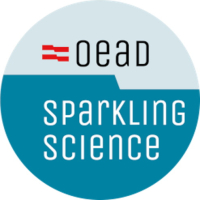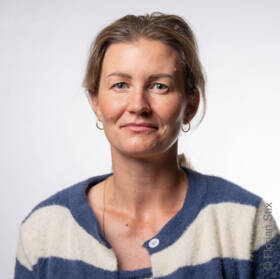Threat and Self-Assertion: Adolescents with Refugee Experience in the Nazi Era and Today.
Background
Throughout human history people have fled persecution, war, poverty, or natural disasters. Unaccompanied, fleeing adolescents face a particularly harsh fate, as they are among the most vulnerable groups. Although there are many different reasons why they find themselves in such situations, they often share similar experiences—something that is frequently overlooked in political debates and media coverage. In this study, we focus on people aged 14 to 21, which corresponds to the developmental stage of adolescence in both legal and sociological terms. This life phase is characterized by identity formation and the often externally influenced detachment from parents. Adolescent refugees, therefore, are affected by two transformative processes: adolescent development and migration-related issues.
Project Content and Research Questions
In this project, we compare – using methods from social sciences and history – the flight movements of Austrian-Jewish adolescents during the Nazi era with the current flight movements of young people aged 14 to 21 years to Austria. Both groups are examined using the same research questions, with special consideration given to their respective contexts and gender-specific differences:
- Which organizations, networks, and measures help unaccompanied adolescent refugees leave?
- What led people to choose specific routes, and what challenges did they face during their journey?
- What was the situation upon arrival in the country of exile? What bureaucratic hurdles had to be overcome, and what challenges arose in adapting to the new environment?
- What experiences did the refugees go through, and how did they cope with the stresses they encountered?
- How is contact with the family maintained, and how is the memory of the country of origin preserved?
Goals
Comparing the life circumstances and coping strategies of refugee adolescents during two distinct flight periods—from 1938 to 1945 and from 2015 to 2023 – is the main goal of the project. Together with students who act as citizen scientists and we pursue the following sub-goals:
- Demonstrating that flight is a recurring theme in human history by focusing on the Nazi era and comparing the situation then to the current one.
- Expanding knowledge on the topic of flight, focusing on aspects such as organization, strategies, networks, departure, the flight process itself, arrival, and integration into the host country.
- Gaining more background knowledge about the experiences and worldviews of refugee and displaced adolescents, including gender-specific aspects.
- Gaining insight into the coping strategies refugees use during flight, how they handle leaving their home country, how well they integrate into the new environment, how they maintain contact with their families and country of origin, and how they construct memories.
- Giving insight into interdisciplinary and participatory research.
- Linking methods from history and social sciences, with a focus on "Digital Humanities" (using computer-based methods and digital resources in the humanities and cultural sciences).
- Acquiring critical media literacy by gaining experience in unmasking fake news and disinformation related to flight and migration.
Methodology
In the first sub-project, historians from Austria's Institute for Jewish History address the research questions listed above. In the second sub-project, social scientists from FH St. Pölten's Ilse Arlt Institute for Social Inclusion Research analyze data from interviews with adolescents who have fled to Austria since 2015.
Students conduct research themselves under the guidance of scientists. Most of the research takes place in workshops at partner schools. In a first step, students are familiarized with the comparative scientific analysis of autobiographical sources from both the Nazi era and the present. They are introduced to the social science method of biographical interviews, as well as historical and linguistic methods. Equipped with this knowledge, they act as citizen scientists and develop their own research questions. Embedding the young people's stories in both historical and contemporary contexts gives a deep understanding of what flight and migration mean for those affected.
All data will be uploaded to a digital platform and made publicly available (Open Access). The data can be used to compare, cross-reference, and identify links between pieces of content. They can also be the foundation for digital storytelling formats. The results are shared with the entire team via academic channels. Additionally, the students create a podcast series for the FH St. Pölten campus radio and run an information booth at the annual "Festival of Encounters" at St. Pölten’s town square.
You want to know more? Feel free to ask!
Academic Director Social Work (MA)
Continuing Education Officer Department for Social Sciences
Course Leader Addiction Counselling and Prevention (acad.)
Course Leader Addiction Counselling and Prevention (certif.)
Course Leader Addiction Counselling and Prevention (MA)
Course Leader Mental Health (acad.)
Course Leader Mental Health (certif.)
Course Leader Mental Health (MA)
Researcher Ilse Arlt Institute for Social Inclusion Research
Department of Social Sciences
Benjamin Grilij
- Injoest
- BiGS St. Pölten - Caritas Bildungszentrum für Gesundheits- und Sozialberufe, NÖ



